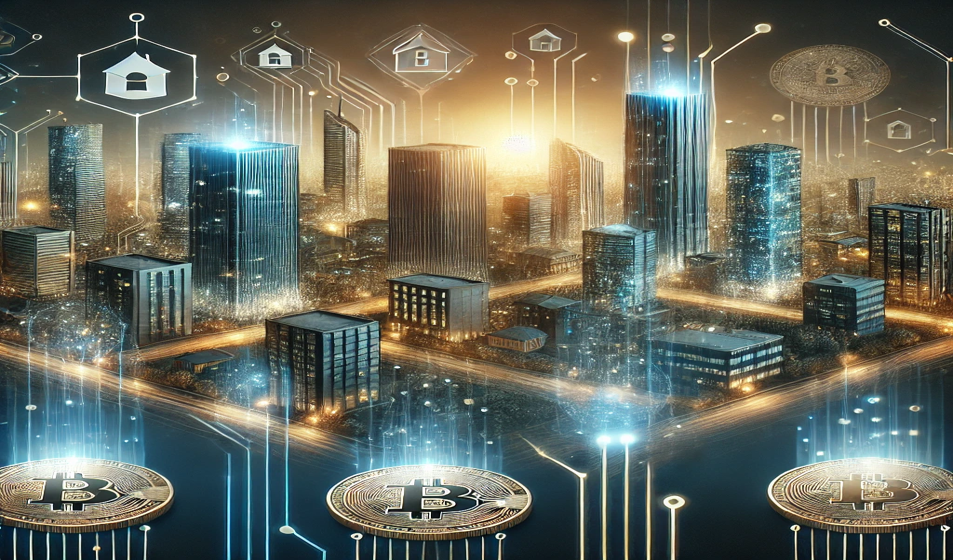As the world rapidly shifts toward digital transformation, the real estate industry, traditionally known for its conservatism, is beginning to explore innovative financial technologies. One of the most promising developments in this space is property tokenisation—a concept that could reshape how we buy, sell, and invest in real estate. So, what exactly is property tokenisation, [...]

As the world rapidly shifts toward digital transformation, the real estate industry, traditionally known for its conservatism, is beginning to explore innovative financial technologies. One of the most promising developments in this space is property tokenisation—a concept that could reshape how we buy, sell, and invest in real estate. So, what exactly is property tokenisation, and why is it important? Let’s dive in.
What Is Property Tokenisation?
Property tokenisation is the process of creating a digital representation of a physical real estate asset on a blockchain. This digital asset, or token, represents a fractional ownership stake in a property. Unlike traditional real estate investments, where entire properties or large shares of real estate trusts are bought and sold, tokenisation enables the division of assets into smaller, more accessible units. This means that a property worth millions can be divided into thousands (or even millions) of tokens, each representing a tiny ownership share.
Imagine a luxury apartment building in London City. Under tokenisation, this building could be divided into tokens, each worth a small portion of the building’s value. These tokens can then be bought, sold, or traded on a blockchain platform, making real estate investment accessible to a wider range of people.
How Does Property Tokenisation Work?
The tokenisation process involves several key steps:
Selection of Asset: A property is chosen to be tokenised, whether it’s a commercial building, residential property, or other real estate asset.
Structuring Ownership: Ownership of the property is divided into shares or tokens, each representing a percentage of the asset.
Smart Contracts: Tokens are created and managed using blockchain technology, specifically through smart contracts. Smart contracts are self-executing contracts with the terms of the agreement directly written into code, ensuring secure and transparent transactions.
Issuance and Sale: The tokens are then issued to investors, often through a regulated platform that manages the sale.
Trading and Ownership: Investors can hold, trade, or sell their tokens in secondary markets, allowing for liquidity and potential returns on investment.
Why Property Tokenisation Matters?
Property tokenisation is revolutionary for several reasons:
Increased Accessibility
Real estate has historically been a high-barrier market, requiring substantial upfront capital. Tokenisation breaks down these barriers, allowing investors to buy smaller portions of properties. This opens the door for more people to participate in real estate, democratising access to what was once an exclusive investment class.
Liquidity in Real Estate
Real estate investments are typically long-term, with low liquidity. With tokenisation, investors can buy and sell tokens in secondary markets, enabling faster transactions and allowing them to access their funds without the lengthy sale process of traditional real estate.
Transparency and Security
Blockchain technology provides a transparent and immutable ledger, recording each transaction and ownership change. This can significantly reduce fraud and increase trust, as investors have clear records of asset ownership and transaction history. Additionally, smart contracts automate transactions, reducing the need for intermediaries and lowering costs.
Fractional Ownership
Tokenisation allows for fractional ownership, enabling investors to diversify across multiple properties rather than investing all their capital into a single asset. This fractional approach can lead to a more balanced investment portfolio and potentially reduced risk.
Global Investment Opportunities
With tokenised real estate, investors are no longer limited by geography. They can invest in properties around the world with ease, broadening their investment scope and potentially tapping into markets they wouldn’t otherwise have access to.
Real-World Applications of Property Tokenisation
The potential of property tokenisation is already being tested in various markets:
Luxury Real Estate: High-value properties, like mansions or luxury apartments, can be divided into tokens, allowing multiple investors to own a piece of a high-value asset.
Commercial Real Estate: Office buildings, shopping centres, and industrial spaces can be tokenised to offer retail investors opportunities to access commercial assets.
Real Estate Investment Trusts (REITs): Tokenised REITs make it possible for investors to own a fraction of a diverse portfolio of real estate assets, combining the benefits of traditional REITs with the advantages of blockchain technology.
The Future of Property Tokenisation
While property tokenisation offers significant advantages, it also faces challenges, such as regulatory hurdles, technology adoption, and the need for secure and reliable trading platforms. However, as blockchain technology matures and regulations evolve to accommodate this new asset class, the potential for property tokenisation to transform the real estate industry is substantial.
Tokenised real estate could lead to an era where real estate investments are more accessible, secure, and efficient than ever before, bringing liquidity, transparency, and inclusivity to one of the oldest asset classes. As the world becomes more comfortable with blockchain and digital assets, property tokenisation might soon become a standard part of the investment landscape, reshaping how we view real estate ownership and investment.
Summary
Property tokenisation is more than just a trend; it represents a significant shift in how people approach real estate investment. By leveraging blockchain technology to offer transparency, fractional ownership, and liquidity, tokenisation holds the promise of making real estate a more accessible and dynamic asset class. For investors, real estate professionals, and technology enthusiasts, staying informed about property tokenisation is essential as this exciting market continues to evolve.

